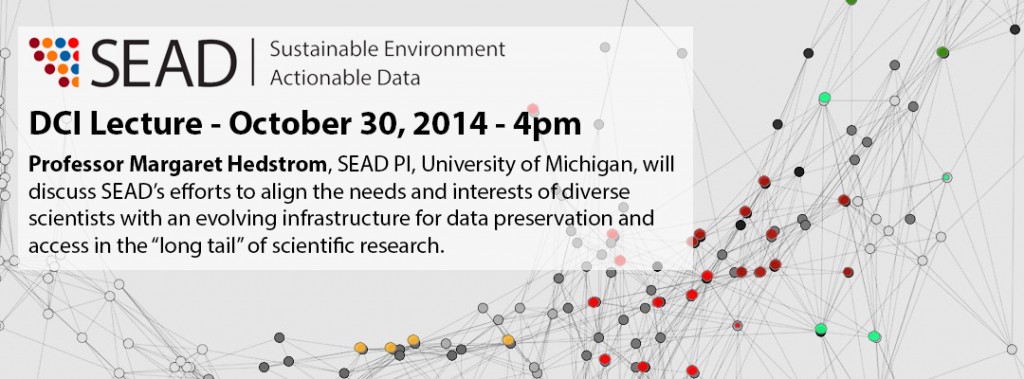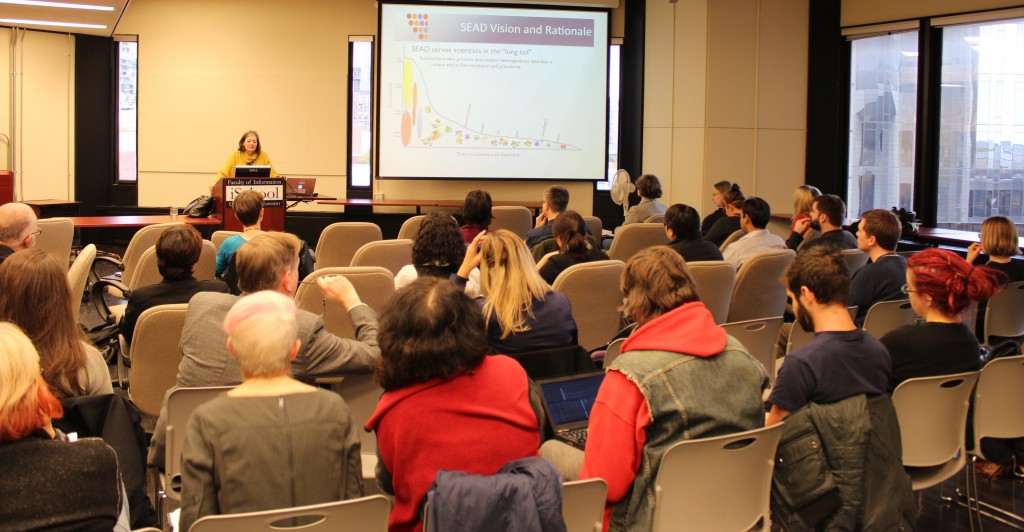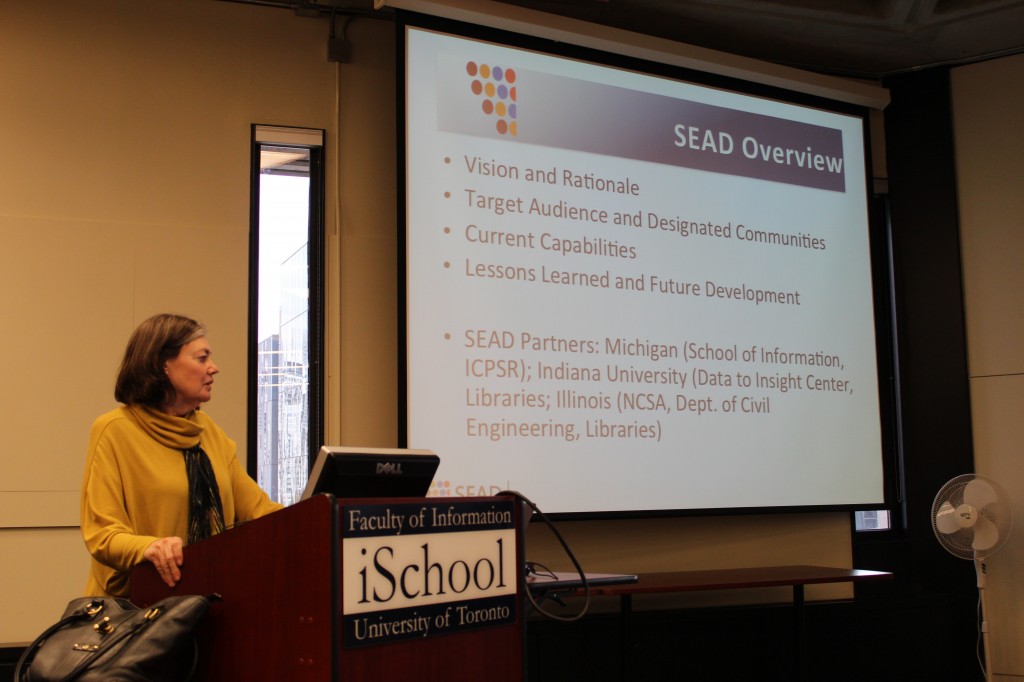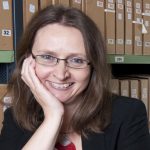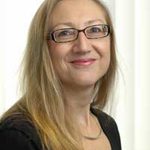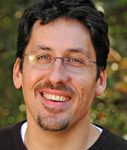The DCI lecture on October 30 features Prof. Margaret Hedstrom
Abstract: Countless examples of standards, tools, and shared practices for digital curation exist, but do these puzzle pieces add up to a scalable infrastructure for Big Data? SEAD (Sustainable Environment: Actionable Data) is building a suite of services for end-to-end capture, sharing, analysis, publishing and preservation of data for researchers in sustainability science. Margaret Hedstrom, SEAD PI, will discuss SEAD’s efforts to align the needs and interests of diverse scientists with an evolving infrastructure for data preservation and access in the “long tail” of scientific research.
 Margaret Hedstrom is a Professor at the School of Information, University of Michigan. Her current research interests include digital preservation strategies, sharing and reuse of scientific data, and the role of archives in shaping collective memory. She is PI for SEAD (Sustainable Environment: Actionable Data), an $8 million project funded by the US National Science Foundation, that is building cyberinfrastructure and developing new practices for data sharing, preservation, access and reuse. She also heads a NSF-sponsored traineeship (IGERT) at the University of Michigan called “Open Data” in partnership with faculty and doctoral students in bioinformatics, computer science, information science, materials science, and chemical engineering that is investigating tools and policies for data sharing and data management. She currently chairs a study committee for the National Research Council, National Academy of Science, on Digital Curation Workforce and Education Issues.
Margaret Hedstrom is a Professor at the School of Information, University of Michigan. Her current research interests include digital preservation strategies, sharing and reuse of scientific data, and the role of archives in shaping collective memory. She is PI for SEAD (Sustainable Environment: Actionable Data), an $8 million project funded by the US National Science Foundation, that is building cyberinfrastructure and developing new practices for data sharing, preservation, access and reuse. She also heads a NSF-sponsored traineeship (IGERT) at the University of Michigan called “Open Data” in partnership with faculty and doctoral students in bioinformatics, computer science, information science, materials science, and chemical engineering that is investigating tools and policies for data sharing and data management. She currently chairs a study committee for the National Research Council, National Academy of Science, on Digital Curation Workforce and Education Issues.
The lecture took place on October 30 at 4pm at the Faculty of Information, in Room 728 (7th floor) at the iSchool, Bissell Building, 140 St. George Street.

